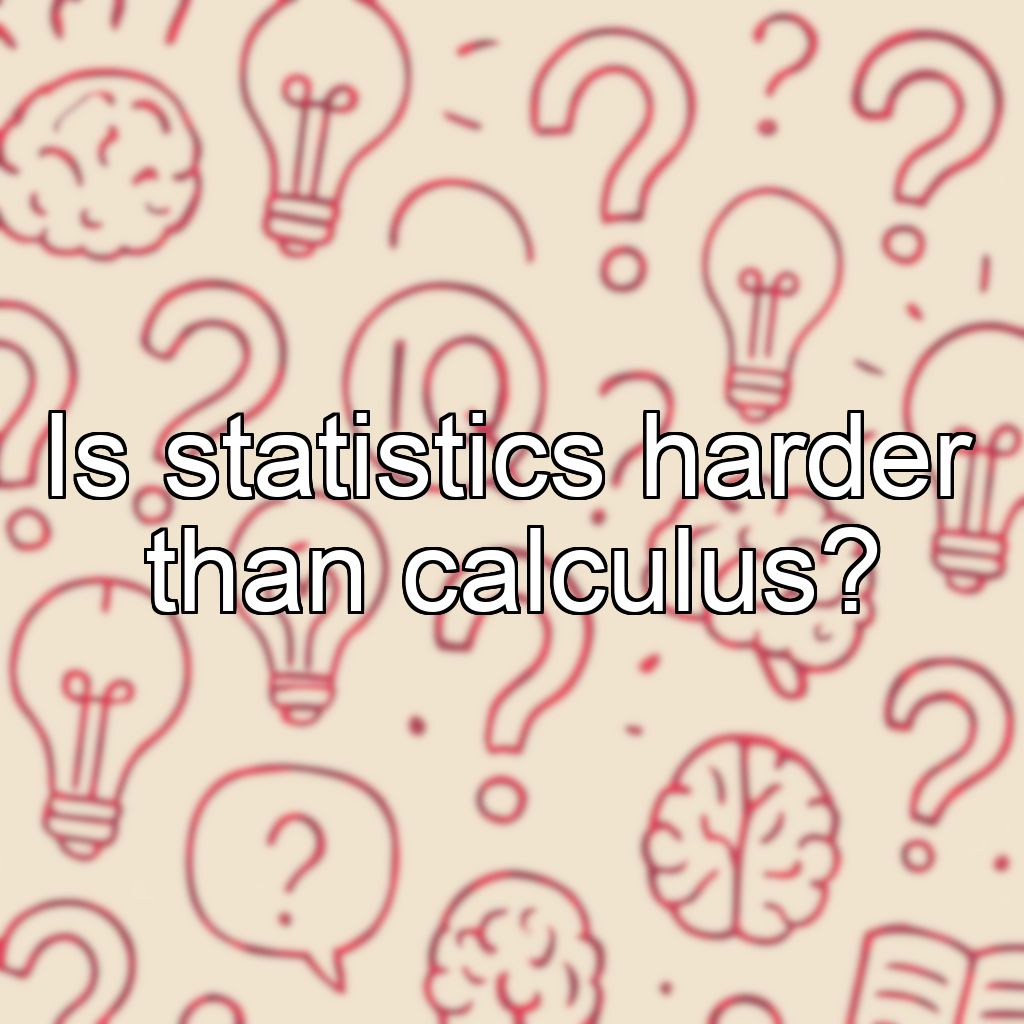Is statistics harder than calculus?

Comparing the Difficulty of Statistics and Calculus
The perceived difficulty of statistics versus calculus depends on a variety of factors, including individual strengths, interests, background, and the specific topics covered in each subject.
Factors Affecting Difficulty
- Mathematical Approach: Calculus is often more abstract and involves continuous change, derivatives, integrals, and mathematical proofs. Statistics, while also mathematical, is typically more focused on data analysis, interpretation, and probability.
- Conceptual vs. Computational: Calculus requires understanding of foundational concepts and the ability to manipulate complex equations. Statistics often requires interpretation of data, understanding of variability, and application of statistical methods to real-world problems.
- Learning Styles: Some students find calculus easier because of its clear rules and logical structure, while others may find statistics more intuitive due to its real-world applications and reliance on reasoning rather than computation alone.
General Observations
- For students who enjoy working with concrete numbers and procedures, calculus may feel more straightforward.
- For those who prefer interpreting data and reasoning through uncertainty, statistics may be more accessible.
- Both subjects can be challenging at advanced levels and require practice and understanding of core principles.
Conclusion
Neither subject is objectively harder; the perceived difficulty is subjective and varies from person to person. Success in either topic often depends on interest, prior preparation, and the specific course content.